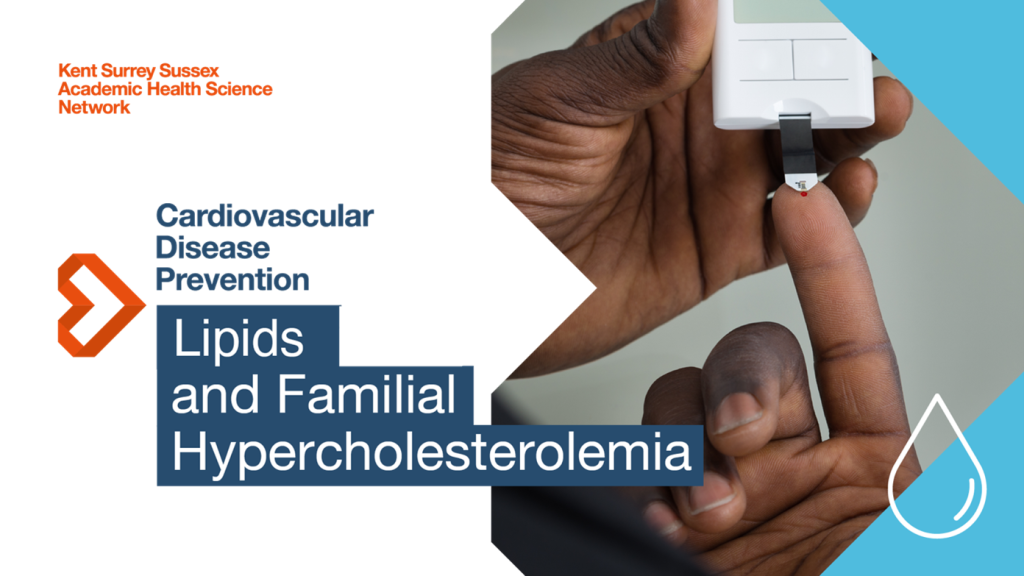The national AHSN/AAC lipid and FH programme will support the NHS long term plan aims around cardiovascular disease through:
- Improving detection of familial hypercholesterolaemia
- Ensuring a consistent, national approach to lipid management, using NICE approved clinical pathways (here); and
- Improving access to rapid uptake products for eligible patients. These products include: high intensity statins, ezetimibe, bempedoic acid, PCSK9 inhibitors and Inclisiran.
Cholesterol / Lipids
The term ‘lipids’ relates to fats in the blood. Lipids such as triglycerides and cholesterol can increase the risk of CVD. High blood cholesterol is a significant risk factor for developing heart and circulatory diseases and can be caused by lifestyle factors including eating saturated fats, activity levels and genetic factors.
There typically aren’t any symptoms of high cholesterol and often people do not know that they have high cholesterol until they take a cholesterol test, or have a heart attack or stroke.
In addition to behaviour changes, there are also a number of treatment options for high cholesterol that can reduce the risk of CVD. It is important to ensure patients have their lipid therapies optimised, and several new therapies are now available if statins are not tolerated. These include Ezetimibe, Bempedoic Acid, Inclisiran and PCSK9i. The latter drug is an injectable, administered in secondary care, whilst the others can all be prescribed in primary care.
To increase the awareness and adoption of the NICE lipid management pathway, Health Innovation KSS is delivering the national lipids optimisation programme.
See our CVD Resources page for downloadable resources to support your Cholesterol programme.
Familial Hypercholesterolemia (FH)
For some people, one of the causes of cardiovascular disease can be inherited (genetic) conditions. These are conditions which can be passed on through families, can affect people of any age, and may be life-threatening.
One inherited condition is familial hypercholesterolaemia (FH). This causes extremely high cholesterol levels and is estimated to affect around 1 in 250 of the UK population. Without treatment, FH can lead to heart disease at a very young age, and people with undetected FH are four times as likely to have a heart attack or stroke than the general population.
However, once it’s been diagnosed, it can be treated with medicines and a healthy lifestyle. We are working with partners across Kent, Surrey and Sussex in the NHS to increase the detection of FH.
See our CVD Resources page for downloadable resources to support your FH programme.
Find out more about our Local CVD Programmes: CVD Prevent and CVD Central


 +44 (0)300 303 8660
+44 (0)300 303 8660
 enquiries@kssahsn.net
enquiries@kssahsn.net
 @kssahsn
@kssahsn